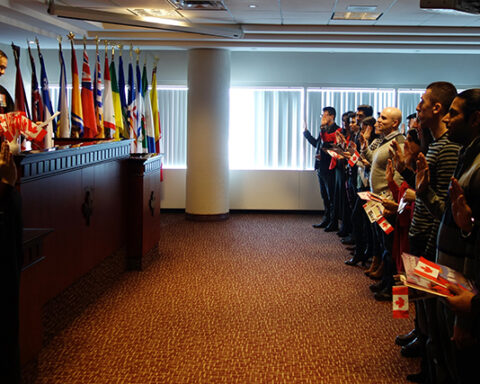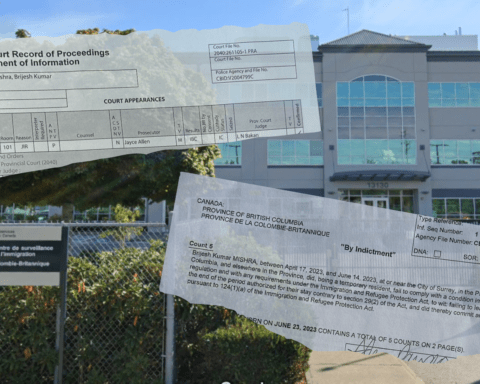Dear Hon. Minister McCallum:
I want to take this opportunity to share with my thoughts on family reunification.
Attending an early platform-planning conversation you organized in 2014, it became clear that family reunification and the challenges faced by new Canadian immigrant families formed the central issue of stakeholder concerns with the immigration system.
A year later, in September 2015, I was not at all surprised when the Liberal party released its immigration platform focused on family reunification as a core priority.
I applaud your party’s pledge to give spouses immigrating to Canada immediate permanent residency and drop the current two-year waiting period.
Rather than protect sponsors from being victims of marriage of convenience schemes, this rule trapped foreign national spouses by tying their statuses completely to their sponsors.
Foreign national spouses were left with little recourse in the case of psychological abuse, adultery, or other types of marriage breakdown.
Foreign national spouses were left with little recourse in the case of psychological abuse, adultery, or other types of marriage breakdown. While some channels were available to report wrongdoing, the law put applicants in a difficult and vulnerable situation.
Along a similar line, the return of the maximum age of a dependent child to 22 from 19 is good for Canadians. This rule prevented several families from uniting due to the fact their children were too old and several years away from any possibility of their own economic immigration.
Canadian families and their reunification concerns
Before writing you, I thought I would survey several stakeholders – sponsors and applicants – who are currently in the process of sponsoring spouses and family members.
You may be interested to note that backlogs and processing times are not the overwhelming source of concerns.
Instead, the way immigration authorities are handling their inquiries and applications, and their lack of short-term options in Canada topped the list.
While Citizenship and Immigration Canada (CIC) provides several instruction guides, they are unavailable in non-official languages and often list only minimum requirements.
Because of this, Canadian families have to spend money hiring lawyers and consultants when their applications are refused or when further information is requested by immigration officials.
I believe today’s families deserve more from immigration authorities in terms of greater transparency and better technology.
If unlucky, they will hire an unqualified practitioner that could ruin the family’s entire future. Many of these individuals operate abroad with little oversight by Canadian regulatory bodies.
Once applicants apply, they have a difficult time tracking the process of their applications.
The Electronic Case Application System (eCAS) does not often provide the necessary detail when missing documents and/or information are an issue.
Letters from CIC asking for further information are unnecessarily vague. Call centre agents, who are understandably under significant pressure due to the high volume of calls, are often prevented from providing updates.
For most applicants, who are without professional help, the only solution, Access to Information Requests (ATIPs), are a challenge to navigate.
I believe today’s families deserve more from immigration authorities in terms of greater transparency and better technology.
Often, during the time of application processing, the applicant cannot even visit or reside with their Canadian family member.
Given that processing times can take up to several years, this has the effect of separating families. This is particularly true with permanent resident sponsors, who simultaneously must meet their own Canadian residency obligations.
There is currently a pilot project providing open work permits to eligible spouses and common law partners living in Canada.
To qualify for an open work permit, a foreign national spouse must have be in Canada on a visitor, student, or worker visa prior to making their in-Canada sponsorship and work permit applications.
This program needs to be expanded to include all applicants who are found eligible to be sponsored. A spouse that has overstayed his/her Canadian visa for a legitimate purpose – such as to be with a Canadian partner – should have some options to work legally in Canada.
Canadian families want nothing more than to be here together and start contributing to the struggling economy earlier.
A closing thought
As you begin your term, Mr. McCallum, please direct your promises at giving Canadian immigrants and their families a greater peace of mind.
Canadian families want nothing more than to be here together and start contributing to the struggling economy earlier.
Yes, we as Canadians, may endure some short-term costs in facilitating this, but these individuals – wives, husbands, partners, children, parents and grandparents – are the foundation of this country and its future. They will pay it back.
Canada is a great country, an attractive country and personally, one that my foreign national fiancée and I hope to call our permanent home. However, it is not our only option and, as my fiancée reminds me on a daily basis, not our easiest option.
Like many other aspiring Canadians, she has an uphill battle to first earn the right, and then find the limited opportunities available, to work or study here. Anything your ministry can do to make our lives easier, and reduce the unnecessary fears engrained by the previous government, would be most welcome.
Will Tao is a Canadian Immigration Lawyer at Larlee Rosenberg, Barristers and Solicitors, in Vancouver, British Columbia. He would like to thank his Federation of Asian Canadian Lawyers British Columbia mentee and University of British Columbia law student, Maria Qian, for her helpful edits.




